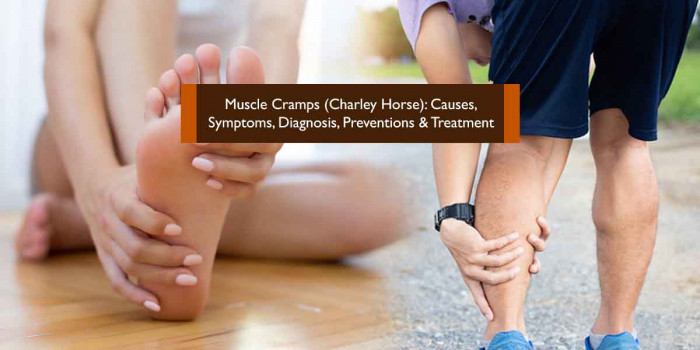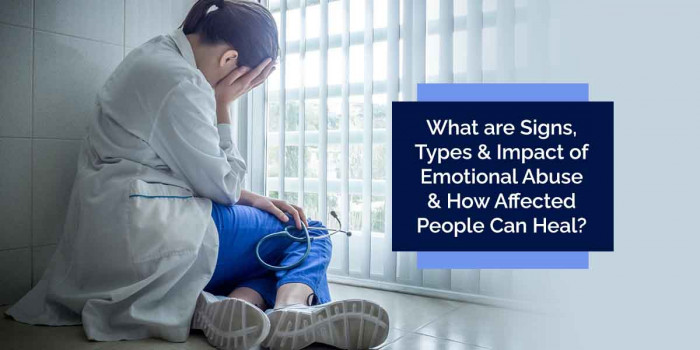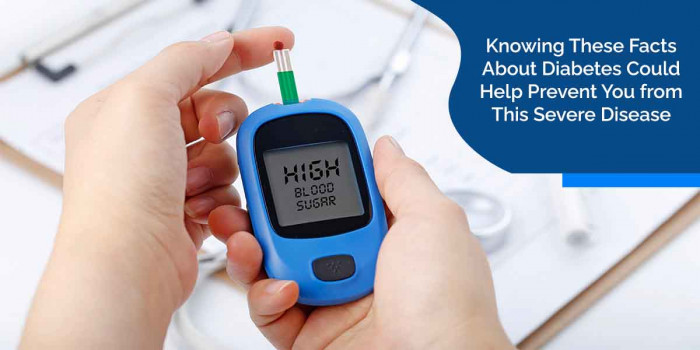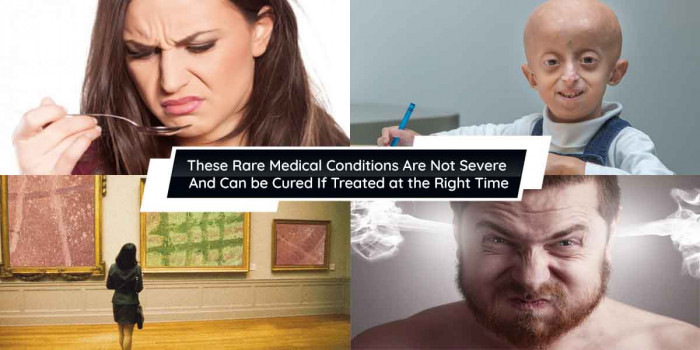Muscle Cramps: Signs & Symptoms, Causes, Diagnosis, Preventions & Cure
Muscle cramps are the sudden, involuntary contractions that can take place in any of the body muscles. Read about why it is caused, what the symptoms are & how to cure it.

Do you know why you feel a nagging pain in any muscle of your body? It might be because you have a cramp! A muscle or leg cramp is a painful tightening of a muscle that comes rapidly and lasts from a few seconds to some minutes. It often happens in the leg muscles and feet. A muscle cramp is also known as a Charley Horse.
A muscle cramp is an involuntarily or forcibly contracted muscle that does not relax, and it can occur in any muscle group. It is commonly seen in the back of the lower leg, back of the thigh, and front of the thigh. It can also occur in hands, feet, arms, and abdominal wall.
The four major types of muscle cramps are "true" cramps, tetany, contractures, and dystonic cramps. Read about the causes, signs & symptoms, diagnosis, preventions, and treatment.
Common Causes of Leg Cramps
- Abnormal nerve activity during sleep
- An excessive strain placed on leg muscles such as when exercising
- A sudden restriction in the blood delivery to the affected muscles
- Muscle injury
- Deficiency of minerals like calcium, potassium, sodium, and magnesium
- Spinal nerve compression
The other causes may include:
- Dehydration
- Pregnancy
- Liver disease
- Some kinds of medication, such as statins (medicines which help lower cholesterol levels)
- Older age
- Long periods of exercise
- Physical labor, especially in a hot climate
- Alcoholism
- Kidney failure
- Hypothyroidism or low thyroid gland function
Signs & Symptoms
In the most common cases, the muscle cramps develop in the leg muscles, especially calf muscles. Sudden, sharp pain is the basic symptom. And a hard lump of muscle tissue can be felt or seen beneath the skin.
Consider seeing a doctor when cramps become frequent; there’s severe discomfort, muscle weakness, and swelling, redness, or skin changes in the leg.
Diagnosis
For the diagnosis, the doctor may ask about symptoms, key personal information about medical history, and medications & supplements you take. He would also ask about the frequency of muscle cramps, affected muscles, exercise habits, daily water/liquid intake, and alcohol consumption.
The doctor also would recommend or perform a physical examination to identify the cause of muscle cramps. A blood test may be required to check the calcium and potassium levels in the blood and also the functioning of the kidney and thyroid.
An EMG (electromyography) is conducted to measure muscle activity and identify muscle abnormalities. An MRI test could also be helpful. Sometimes myelography could also be done.
Preventions
The best way to prevent muscle cramps is by avoiding or limiting exercises that strain muscles and cause spasms.
- Do not exercise after eating.
- Warm-up or stretch before taking part in sports or exercising
- Lower consumption of food and drink containing caffeine like coffee and chocolate
- Improve calcium and potassium intake naturally by drinking orange juice and milk and eating bananas.
- Have enough liquids to avoid dehydration. As the body loses more water during any physical activity, increase your liquid intake & keep yourself hydrated.
- Consult a doctor about taking supplements to ensure the essential supply of nutrients and minerals.
Ways to Cure Muscle Cramps
They are usually harmless, and lifestyle/home remedies and self-care measures can help treat muscle cramps. Here are some ways to heal it:
- Stretch and massage the affected muscle
- Take a warm shower or place a heating pad on the muscle
- Use ice or cold pack (Always keep a cloth between the ice pack and your skin)
- Drink plenty of liquids and juices
- Alternative medicine: Take Vitamin B, calcium, and potassium supplements
- Over-the-counter, anti-inflammatory medications like ibuprofen help reduce pain and gently stretch the sore muscles
- Hot or cold compress
Concluding Thoughts
Nearly 95% of people experience at some point in their life. They may last for a few seconds to 15 minutes or sometimes even longer. It may make it harder to walk and keep you awake all night. So in the case of muscle cramps, try self-care measures and home remedies.
Popular Posts
10 Amazing Lessons You Should Learn From Mr Olympia Jeremy Buendia
Jeremy Buendia is an fitness inspiration for people from all over the world, there is a reason why he has been so successful at what he has been doing. Don’t look for the reasons take some lessons from the fitness sensation right here, that can change your lives.
Ethan Stephans
Why Are Pubic Hair Thicker Than Body Hair?
As children we always had several questions about our bodies, which were alien to us, this post is to serve a decade-long curiosity of young boys/girls about their pubic hair and its texture.
Augustus Perez
7 Sleeping Tips That Every Woman Should Follow During Pregnancy
Pregnancy is not easy. Pregnant women experience a lot of changes in their bodies, like increased stomach size, frequent urination, and sleeping discomfort.
Still Unfold








